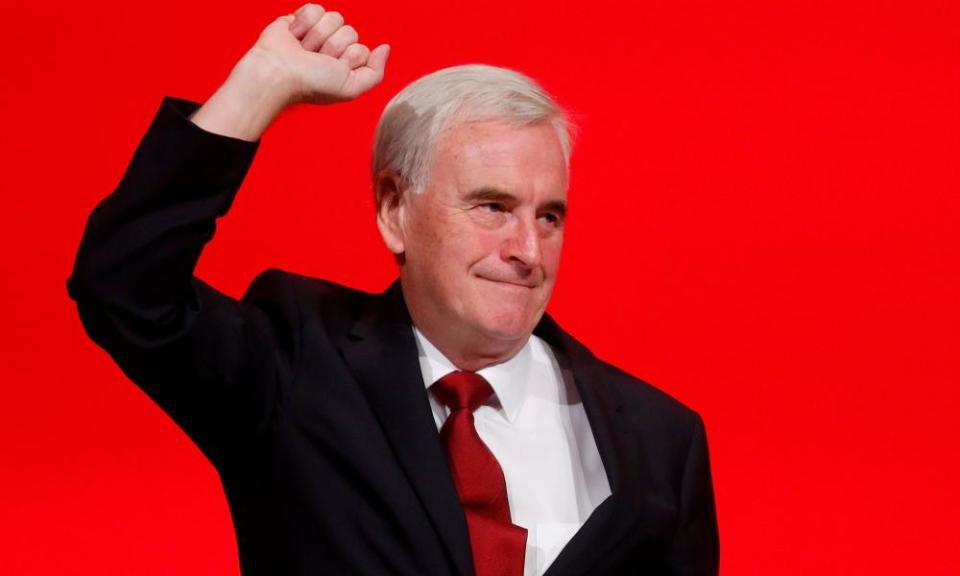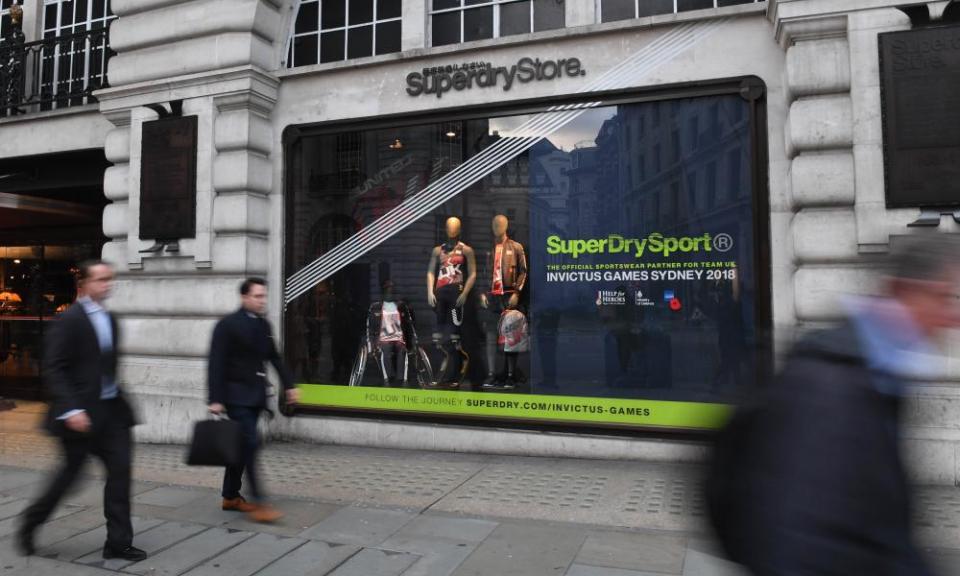Labour's shares plan for workers has glaring flaws

If you thought John McDonnell’s plan to force all big companies to give a collective 10% stake to their workers was a detailed policy announcement, think again. Judging by a comment aimed at a business audience, the shadow chancellor is prepared to be flexible. “If you can achieve the same objective by a different route, then come and talk to us,” said McDonnell in an interview with the FT.
Let us hope flexibility includes a willingness to start almost from scratch. The only strong part of plan A was the enthusiasm for boosting employees’ share stakes. The problem lay in basic features of McDonnell’s “inclusive ownership funds”. The most glaring flaw – obvious to anyone who crunched a few numbers – was that the plan didn’t look like share ownership as the rest of the world understands the term.
The central oddity was that individual employees would merely be entitled to a maximum of £500 from dividends every year and any dividend balance would go to the Treasury. At Lloyds Banking Group last year, that would have meant 68,000 staff sharing £34m while the Treasury received £185m if the 10% ownership limit had been reached. That is plainly more of a tax-raising measure than anything else. More extreme examples can be found at other FTSE 100 companies.
One could point to other difficulties. Would companies depress wages and pensions contributions in response? Who would decide how the collectively owned shares are voted? Would the employees or the Treasury collect the proceeds from the 10% stake when companies are taken over?
Employee share ownership is fertile territory for a popular policy and McDonnell’s instinct was sound on that score. But any credible approach can’t involve the Treasury helping itself to a few billion quid. And, in the interest of fairness to UK-owned companies, the shadow chancellor, if he wants to take the route of compulsion, must explain how he would impose his plan on foreign firms operating in the UK.
If he can overcome those hurdles, McDonnell could have something workable. But it will require more than technical tweaks.
Superdry sloppy on currency hedges
Clothing retailers complaining about the warm weather has become an annual autumn event. Last year Next was first out of the traps. This time it is Superdry, where the additional grumble was about the long, hot summer. The company estimates the weather-related whack to profits this financial year will be £10m, a hefty blow. Superdry wants to reduce reliance on “heavier weight product”, meaning jackets and coats. Good idea, but it would have been better to start more than five months ago.
Yet the more alarming part for investors was probably the other half of the warning. Losing £8m from foreign exchange hedges is sloppy and the explanation was weak. The financial instruments did not provide “the same degree of protection as expected” and the fault seems to have been caused by poor communication between buying teams and the finance department.

Its chief executive, Euan Sutherland, says the company is now on top of the problem. One should hope so. Hedging currency risk is basic stuff for clothing firms with international expansion plans. The boasts about being a modern “global digital brand” are less impressive if £8m can be lost via lack of old-fashioned financial discipline.
The result is that, instead of full-year profits of about £110m, the City now expects a figure slightly below £90m. It would represent the first fall in annual profits since 2012. In the circumstances, the severe 21% fall in the share price looks about right.
Johnson has egg on his face over Patisserie borrowing
“I didn’t even know there were bank overdraft facilities,” said Luke Johnson at the weekend, talking about how on earth Patisserie Holdings, where he is the long-standing executive chairman, could report net cash of £28.8m in May but confess to having net debt of £9.8m last week.
His declaration of ignorance was too loose. Under “liquidity risk”, page 10 of Patisserie’s 2017 accounts clearly stated that “short-term flexibility is achieved by overdraft facilities”. Page 38 recorded zero borrowing at the balance sheet date but repeated the information that the group “has a short-term overdraft facility in place”. Page 39, while stating that cash balances fund normal trading activity, added: “The group also has access to both short-term and long-term borrowings to finance individual projects.”
So what, precisely, was Johnson claiming in the Sunday Times? Was he saying that separate borrowing facilities were set up without his knowledge? Or was he conceding that he didn’t know the true state of the authorised facilities? There is a big difference between the two positions.

 Yahoo Finance
Yahoo Finance 